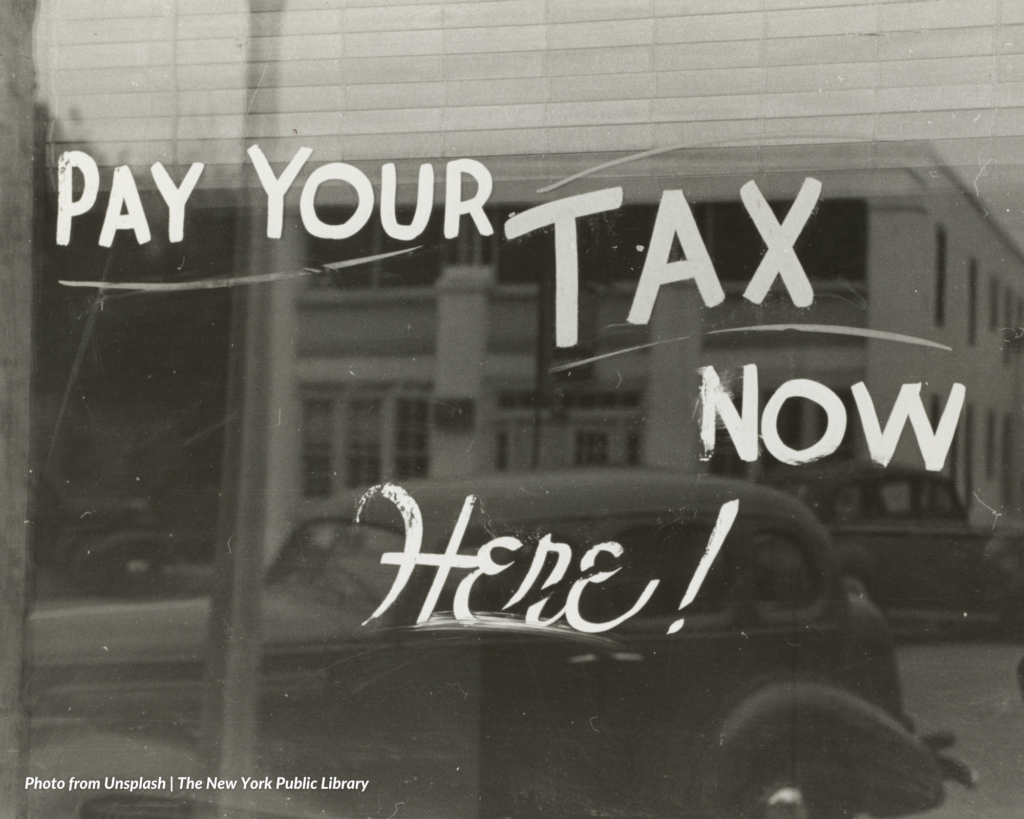
Photo from Unpsplash | The New York Public Library
The following post does not create a lawyer-client relationship between Alburo Alburo and Associates Law Offices (or any of its lawyers) and the reader. It is still best for you to engage the services of a lawyer or you may directly contact and consult Alburo Alburo and Associates Law Offices to address your specific legal concerns, if there is any.
Also, the matters contained in the following were written in accordance with the law, rules, and jurisprudence prevailing at the time of writing and posting, and do not include any future developments on the subject matter under discussion.
AT A GLANCE:
If the prosecution files a criminal case for tax violation against a taxpayer-accused, the civil action for collection of deficiency taxes is deemed instituted. Hence, a formal assessment issued by the Commissioner of Internal Revenue (CIR) is not required for the imposition of civil liability for unpaid taxes.
In the case of People of the Philippines v. Joel Mendez (G.R. Nos. 208310-11, March 28, 2023) the Supreme Court held that an assessment for deficiency taxes is not a prerequisite for collection of the taxpayer-accused’s civil liability for unpaid taxes in the criminal prosecution for tax law violations.
The Supreme Court issued guidelines for the guidance of the Bench and Bar in the prosecution of criminal tax law violations and the corresponding civil liability for unpaid taxes:
(1) When a criminal action for violation of the tax laws is filed, a prior assessment is not required. Neither is a final assessment a precondition to collection of delinquent taxes in the criminal tax case. The criminal action is deemed a collection case. The government must thus prove two things: (a) the guilt of the accused by proof beyond reasonable doubt; and (b) the accused’s civil liability for taxes by competent evidence (other than an assessment).
(2) If before the institution of the criminal action, the government filed (a) a civil suit for collection, or (b) an answer to the taxpayer’s petition for review before the CTA, the civil action or the resolution of the taxpayer’s petition for review shall be suspended before judgment on the merits until final judgment is rendered on the criminal action. However, before judgment on the merits is rendered on the civil action, it may be consolidated with the criminal action. In such a case, the judgment in the criminal action shall include a finding of the accused’s liability for unpaid taxes relative to the criminal case.
RELATED ARTICLE:
Click here to subscribe to our newsletter
Alburo Alburo and Associates Law Offices specializes in business law and labor law consulting. For inquiries regarding legal services, you may reach us at info@alburolaw.com, or dial us at (02)7745-4391/ 0917-5772207/ 09778050020.
All rights reserved.

